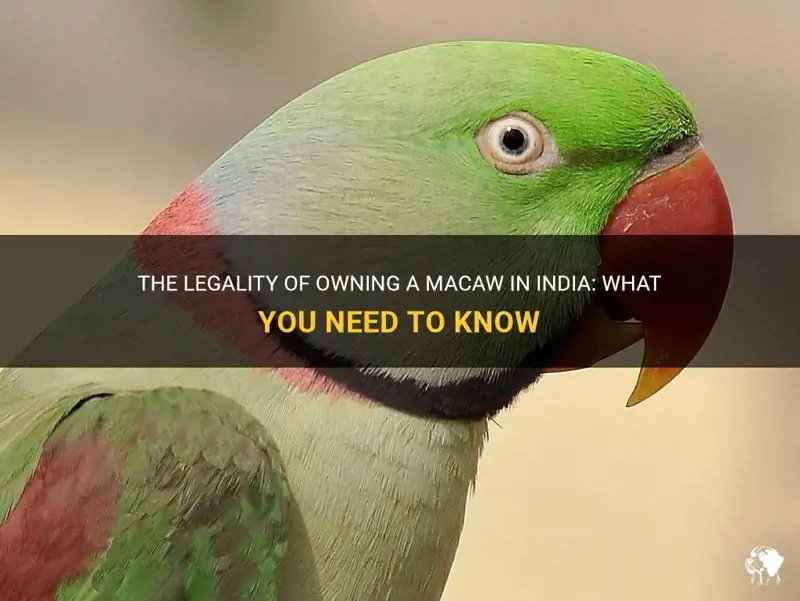
Imagine getting a new puppy—you’d need to consider training, space, and time commitment. Now, picture that, but on a larger scale with a feathered friend that can live for 50 years or more! That’s why it’s crucial to understand what goes into owning macaws. They require not just love, but also compliance with laws and an understanding of their needs as sentient beings.
In this article, we’ll navigate the legalities and ethics of macaw ownership to help you make an informed decision.
Understanding Macaw Ownership Legislation
When considering a macaw as a pet, the first thing to know is that different regions have unique laws regarding pet ownership. Legislation can cover everything from how macaws are imported to regulations on breeding and sale. In many places, macaws may require special permits—especially the endangered species.
For example, in the United States, the *Lacey Act* prohibits the sale and transportation of illegally acquired wildlife. If you’re thinking about bringing a macaw home, it’s critical to ensure that your bird was obtained legally. This protects not only your investment but also helps conserve these beautiful creatures in the wild.
Moreover, some states have additional requirements. You might need to register your macaw or meet specific standards for housing. Always research your local laws before making a commitment. Trust me, nothing dampens the joy of bringing a new pet home like a visit from animal control because you overlooked a simple requirement.
Ethical Considerations of Macaw Ownership
Let’s shift gears and talk ethics. Owning a macaw isn’t just about legality; it’s also about responsibility and compassion. Macaws are *social creatures* that thrive on interaction. Simply keeping them in a cage isn’t enough. You need to provide stimulation, both physical and mental, for their well-being.
Consider the ethical implications of breeding. Are you aware of how many macaws are already in shelters? By adopting from a rescue organization, you’re not just getting a pet; you’re making a statement against irresponsible breeding practices. Plus, many rescues provide us with birds that are already well-socialized, lessening the training burden on new owners.
Also, think about your own lifestyle. If you travel frequently or work long hours, a macaw might not be the best fit for you. These birds can suffer from separation anxiety, leading to behavioral issues. Remember, adopting a pet is a long-term commitment—be sure you’re ready for the challenge!
Housing and Environment Requirements
Your macaw’s home environment is crucial for its happiness and health. Macaws need spacious cages with plenty of room to stretch their wings. Cage dimensions should ideally be at least 4 feet wide, 3 feet deep, and 5 feet tall—think of it as a spacious apartment for your bird!
But it doesn’t stop there. Macaws also require a safe, stimulating environment when they’re out of their cage. This could include:
- Play areas with toys and climbing structures
- Safe, non-toxic plants
- Regular interaction with family members
By creating a rich environment, you’re not just meeting basic needs—you’re helping your macaw to thrive. It’s a fun challenge, and honestly, you’ll find your macaw’s quirky personality shining brighter when they’re happy.
Health Care and Veterinary Considerations
Of course, a responsible macaw owner also needs to prioritize *health care*. Regular veterinary check-ups are essential, as macaws can be prone to a variety of health issues, including feather plucking and respiratory problems.
Finding a vet who specializes in avian medicine is key. Unlike your typical pet, macaws have unique dietary needs and health concerns that require specialized care. This means ongoing costs—vet visits, specific diets, and maybe even medication. Here’s the thing: budgeting for a macaw isn’t just about the initial purchase. You also need to consider the long-term expenses of keeping them healthy.
Don’t forget about their diet. A balanced macaw diet typically includes pellets, fresh fruits, and vegetables. Just like you wouldn’t want to eat junk food all the time, neither does your macaw! Investing in their nutritional needs means fewer vet visits and a happier, healthier bird.
Socialization and Training Needs
Macaws are intelligent and curious creatures, which means that socialization and training are non-negotiable for their happiness. Think of training your macaw like teaching a child—patience and consistency are crucial.
Start by exposing your macaw to different environments. Bring them to safe places where they can meet new people and maybe even other animals (always supervised, of course!). This type of exposure helps them become well-adjusted and less anxious.
You might want to teach them some basic commands or tricks. Training isn’t just about obedience; it stimulates their minds and can prevent boredom—a common cause of destructive behaviors. Honestly, nothing beats the joy of watching your macaw learn to say a new word or perform a trick!
Dealing with Adoption and Breeding Ethics
When you’re considering macaw ownership, it’s crucial to think about how and where you acquire your bird. As mentioned, adopting from a rescue can save a life. On the other hand, if you’re considering buying from a breeder, make sure they’re reputable and ethical.
Ethical breeders treat their birds with care, ensuring they’re healthy and well-socialized. They tend to be transparent about their practices and are often willing to answer all your questions. It’s worth doing your research here. Not all breeders have the birds’ best interests at heart, and you don’t want to support unethical practices.
Also, be cautious about purchasing macaws from pet stores. While some have good practices, many get their birds from less reputable sources. You might find yourself unwittingly supporting a breeding operation that doesn’t prioritize the health and happiness of the animals.
Living with a Macaw: Lifestyle Adjustments
Heading into macaw ownership means making some lifestyle adjustments. These birds thrive on routine and can become stressed with sudden changes. If you’re a free spirit who travels a lot or likes to be spontaneous, think about how a macaw fits into that picture.
Besides your day-to-day schedule, consider your living space too. Macaws can be loud and messy! Their vocalizations can reach impressive decibel levels. Make sure your home—especially if you live in an apartment or close quarters—can handle a loud, chatty featherball.
At the end of the day, owning a macaw can be incredibly rewarding, but it requires commitment, thoughtfulness, and a willingness to adapt.
In conclusion, while macaws might bring sunshine into your life, understanding the legal and ethical responsibilities of ownership is crucial. Owning such a magnificent bird isn’t just about the joy they bring; it’s about ensuring their well-being and respecting the laws that protect them. If you feel ready to take on the challenge, a macaw might be the perfect addition to your family. Just remember, they’re not just pets; they’re family!

